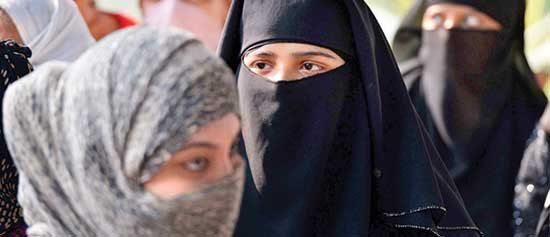Blitz Bureau
Muslims are divided on the Supreme Court’s alimony order for divorced Muslim women. While triple talaq crusader Shayara Bano expressed satisfaction that it will bring benefits to divorced Muslim women, the All-India Muslim Personal Law Board (AIMPLB) said it is exploring all possible measures to get the court to “roll back” its ruling as it is “against” Islamic law.
The AIMPLB Working Committee held a meeting on July 14 stated it is against the “Sharia” (Islamic law). It is pertinent to recall here the Shah Bano case of the 1980s where a Muslim man was directed to pay alimony to his divorced wife but the then Congress government changed the laws to overturn the decision.
The Supreme Court had on July 10 ruled that a divorced Muslim woman is entitled to seek maintenance from her husband under Section 125 of the Criminal Procedure Code (CrPC), asserting that any discrimination against Muslim women in matters of alimony under the secular laws of the country would be regressive and against gender justice, equality.
A Bench, comprising justices BV Nagarathna and AG Masih, decisively rejected the argument that the provisions of Section 125 of the CrPC do not apply in view of there being a personal law for Muslims, and that the Muslim Women (Protection of Rights on Divorce) Act, 1986, will prevail over the secular law.
“There cannot be disparity in receiving maintenance on the basis of the law under which a woman is married or divorced. The same cannot be a basis for discriminating a divorced woman entitled to maintenance as per the conditions stipulated under Section 125 of the CrPC or any personal or other law such as the 1986 Act. I, therefore, hold that Section 125 of the CrPC cannot be excluded from its application to a divorced Muslim woman irrespective of the law under which she is divorced,” said justice Nagarathna in her judgment. Both the judges on the bench wrote separate but concurring judgments.
The judgment further held: “Maintenance is a facet of gender parity and enabler of equality, not charity. A destitute Muslim woman has the right to seek maintenance under Section 125 of the CrPC despite the enactment of the 1986 Act.”
The court underscored that the rights granted to a Muslim woman under the 1986 Act to receive a reasonable and fair provision and maintenance from her former husband during the ‘iddat’ (grieving period) are in addition to, not in derogation of, those under Section 125 of the CrPC.
































